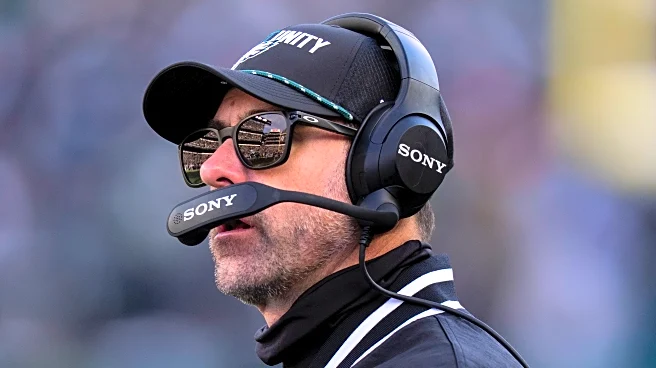What's Happening?
Netflix's latest true crime series, 'Monster: The Ed Gein Story,' has become the top show on the platform, captivating audiences with its portrayal of the infamous serial killer Ed Gein. The series, part of a true crime anthology by Ryan Murphy and Ian
Brennan, explores Gein's gruesome crimes in 1950s Wisconsin, which inspired several horror films. The show's success reflects the ongoing popularity of true crime content, drawing viewers with its chilling narrative and historical context.
Why It's Important?
The popularity of 'Monster: The Ed Gein Story' highlights the enduring fascination with true crime stories and their impact on streaming platforms. This trend influences content creation, as networks and producers invest in similar series to meet audience demand. The success of such shows can drive subscriptions and viewership, affecting the competitive landscape of streaming services. Additionally, true crime content raises ethical considerations about the portrayal of real-life events and the potential for sensationalism.
What's Next?
Streaming platforms may continue to expand their true crime offerings, exploring new stories and historical cases to captivate audiences. The success of 'Monster: The Ed Gein Story' could lead to more collaborations between high-profile creators and streaming services, aiming to produce compelling and engaging content. As the genre evolves, there may be increased scrutiny on how these stories are told, with calls for responsible and sensitive portrayals of real-life events.
Beyond the Headlines
The rise of true crime content reflects broader societal interests in understanding criminal behavior and the psychology behind notorious cases. It also raises questions about the impact of such content on public perceptions of crime and justice. As viewers engage with these stories, there may be a growing interest in related fields, such as forensic science and criminal psychology, influencing educational and career choices.


















